
Saturday, 31 December 2016
Thursday, 29 December 2016
THE COMEDY OF ERRORS
Here you can read the whole Shakespearean comedy.
Here you can find a detailed analysis of this play which sparkles with wit and invention. Based on a farce by the Roman playwright Plautus, it is
a work full of slapstick humour
and rich characterisation that centres around two sets of identical twins
accidentally separated at birth.
Saturday, 24 December 2016
Friday, 16 December 2016
HAPPY BIRTHDAY, MISS AUSTEN!

Jane Austen was born on December 16, 1775, in Steventon, Hampshire, England. While not widely known in her own time, Jane Austen's novels of love among the landed gentry gained popularity after 1869, and her reputation skyrocketed in the 20th century. Her novels, including Pride and Prejudice and Sense and Sensibility, are considered literary classics, bridging the gap between romance and realism. Continue reading here.

Tuesday, 13 December 2016
SAMUEL JOHNSON
Samuel Johnson was an English writer and critic, and one of the most famous literary figures of the 18th century. His best-known work is his "Dictionary of the English Language".
He died on 13 December 1784 and is buried at Westminster Abbey.
Here is a review of David Nokes's 2009 biography of Dr Johnson.
Sunday, 4 December 2016
MY SUNDAY MOVIE - UNDER THE TUSCAN SUN
Under the Tuscan Sun is a
2003 romantic comedy film. Based on Frances Mayes' 1996 memoir, the film is about a just-divorced American writer who buys
a villa in Tuscany, hoping it will be the start of a change
for the better in her life.
Frances is a writer in
her mid-'30s who feels emotionally upset after her divorce. Unhappy and unable
to write, she doesn’t know what to do with her life, and her best friend Patti
decides she needs some time away from her problems - Patti gives Frances a
ticket for a two-week tour of the Tuscany region of Italy; while there, Frances
finds a decaying old villa. Charmed by
the kindness, beauty, and charm of the small town of Cortona, she on impulse
decides to buy the villa, thinking she can fix it up herself. She hires a crew of Polish immigrants to
renovate the house. Over time Frances develops a new
confidence as she makes friends with her neighbours and finds love with a
handsome local named Marcello, but their relationship does not
last. She is about to give up on happiness ...
I recommend you watch this delightful film which has an enjoyable story, excellent scenery and charming characters ... Just an old favourite of mine!
Saturday, 3 December 2016
REVISING ROBERT LOUIS STEVENSON

On 3 December 1894 Robert Louis Stevenson died very suddenly. He had defied his weak lungs for over 40 years, but in the end it was a brain haemorrhage which killed him. He was buried on the summit of Mount Vaea, Vailima, on a small Samoan island in the Pacific, with his “Requiem”.
Fourteen years earlier, when he was very ill in California, he had composed his own epitaph:
"Under the wide and starry sky,
Dig the grave and let me lie.
Glad did I live and gladly die,
And I laid me down with a will.
This be the verse you grave for me:
Here he lies where he longed to be;
Home is the sailor, home from sea,
And the hunter home from the hill."
Dig the grave and let me lie.
Glad did I live and gladly die,
And I laid me down with a will.
This be the verse you grave for me:
Here he lies where he longed to be;
Home is the sailor, home from sea,
And the hunter home from the hill."

Here you can find a study guide on Robert Louis Stevenson's most captivating novel, The Strange Case of Dr. Jekyll and Mr. Hyde.
Friday, 2 December 2016
ROMANTICISM IN LITERATURE AND ART
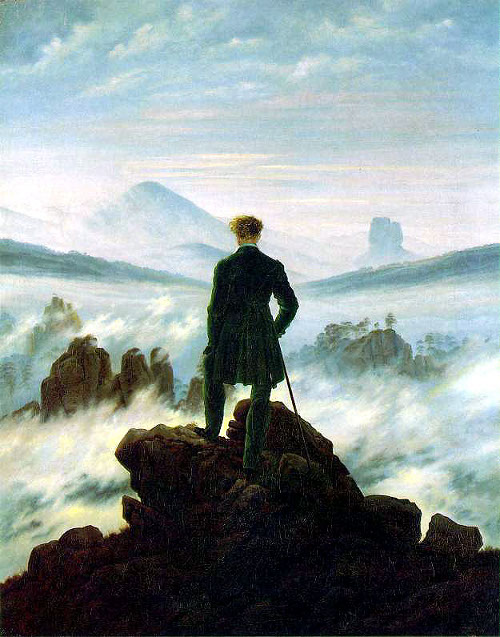
“In spite of difference of soil and climate, of language and manners, of laws and customs, in spite of things silently gone out of mind and things violently destroyed, the Poet binds together by passion and knowledge the vast empire of human society, as it is spread over the whole earth, and over all time. The objects of the Poet’s thoughts are everywhere; though the eyes and senses of man are, it is true, his favorite guides, yet he will follow wheresoever he can find an atmosphere of sensation in which to move his wings. Poetry is the first and last of all knowledge—it is as immortal as the heart of man.”
William Wordsworth, “Preface to Lyrical Ballads"
Discovering Literature: The Romantics
Introduction to Romanticism
Thursday, 1 December 2016
Tuesday, 29 November 2016
HAPPY BIRTHDAY, LOUISA MAY ALCOTT!

I have always loved Louisa May Alcott! She was definitely my
favourite writer when I was a teenager and used to spend long hours
reading and enjoying her beautiful novels! Jo March will always be one of
my favourite heroines because she is lively, intelligent,
passionate, strong-minded and independent ... even more than Jane
Austen's heroines!
Read here an article from The
Telegraph about this female author who also became a famous
feminist and campaigned for the abolition of slavery.
It is absolutely worthwhile to read her most
celebrated novel Little Women! Click here for a detailed analysis of the novel.
Sunday, 27 November 2016
10 FAMOUS QUOTATIONS FROM ROMEO AND JULIET
Romeo and Juliet is among the most popular plays ever written in the
English language. Written by the master playwright William Shakespeare, it
tells the story of two young lovers whose families have a long history of
violence against each other. Like most plays from Shakespeare, Romeo and Juliet
is laden with many great dialogues.
Here are 10 of the most famous quotations
from the play with their explanations.
#10
“Love is a smoke raised with
the fume of sighs;
Being purged, a fire sparkling
in lovers’ eyes;
Being vex’d a sea nourish’d
with lovers’ tears.”
Romeo (Act I, Scene 1)
This is a famous definition of love from the master playwright through his
character Romeo. It starts by saying that love is a smoke that rises from the
fume of sighs, i.e. sighs of a person who is initially attracted to someone
raises love just like fumes raise smoke. If the smoke is cleared, it causes a
lover’s eyes to sparkle. However if the smoke is stirred up it can create a sea
of tears of the lover. In simple words Shakespeare is saying that love can be
source of great happiness or great sadness depending on how it is handled.
Friday, 25 November 2016
THE BALCONY SCENE IN ROMEO AND JULIET
The Balcony Scene in Romeo and Juliet is one of the most famous scenes in all of Shakespeare's
plays.
It follows the meeting of Romeo,
a Montague, and Juliet, a
Capulet, at a fancy dress party in Juliet's home. Romeo and his friends sneak
into the party, uninvited, and when Romeo sees Juliet, he is instantly smitten.
After the party, Romeo jumps over the Capulets' garden wall, and searches for
Juliet.
Romeo hides in the garden and soon observes Juliet walking onto the balcony
outside her room. When Romeo sees Juliet, he feels hope; it is as if the sun is
rising. This is important to note, as Romeo has just spent several weeks pining
over an unrequited love, Rosaline. When he sees Juliet at the party, Rosaline
is instantly forgotten.
Thursday, 24 November 2016
Wednesday, 23 November 2016
WHY IS JANE AUSTEN STILL IMPORTANT?
Here you can find a significant article about Jane Austen's longevity.
“Anyone who has the temerity to write about Jane Austen is aware of [two] facts: first, that of all great writers she is the most difficult to catch in the act of greatness; second, that there are twenty-five elderly gentlemen living in the neighbourhood of London who resent any slight upon her genius as if it were an insult to the chastity of their aunts.”
Virginia Woolf, A Room of One's Own
Virginia Woolf, A Room of One's Own
Sunday, 6 November 2016
FICTION DURING THE ROMANTIC AGE - MARY SHELLEY
Mary Wollstonecraft Shelley, née Mary Wollstonecraft Godwin, was the only daughter of William Godwin and Mary Wollstonecraft. Their high expectations of her future are, perhaps, indicated by their blessing her upon her birth with both their names. She was born on 30 August 1797 in London. The labor was not difficult, but complications developed with the afterbirth. Despite expert attention, her mother sickened from placental infection and died eleven days after her birth, on 10 September. Continue reading here.
Tuesday, 1 November 2016
Monday, 31 October 2016
JOHN KEATS, THE POET OF BEAUTY
John Keats was born on 31 October 1795 in Moorgate, London, England, the first child
born to Frances Jennings and Thomas Keats. After leaving school in Enfield,
Keats went on to apprentice with Dr. Hammond, a surgeon in Edmonton. After his
father died in a riding accident, and his mother died of tuberculosis, John and
his brothers moved to Hampstead. It was here that Keats met Charles Armitage
Brown (1787-1842) who would become a great friend. Remembering his first
meeting with him, Brown writes "His full fine eyes were
lustrously intellectual, and beaming (at that time!)". Much grieved by his death, Brown worked for many
years on his biography, Life of John Keats (1841).
In it Brown claims that it was not until Keats read Edmund Spencer's Faery Queen that
he realised his own gift for the poetic. Keats was an avid student in the
fields of medicine and natural history, but he then turned his attentions to
the literary works of such authors as William Shakespeare and Geoffrey
Chaucer. Continue reading here.
Here you can find a summary and an analysis of John Keats's "Ode to a Nightingale".
Here you can find a summary and an analysis of John Keats's "Ode to a Nightingale".
Wednesday, 19 October 2016
Tuesday, 18 October 2016
PERCY BYSSHE SHELLEY
A major figure among the English Romantic poets, Percy
Bysshe Shelley led an
unconventional life and died tragically young.
He was born
on 4 August 1792 near Horsham in Sussex. His father was a member of
parliament. Shelley was educated at Eton and at Oxford University. There he
began to read radical writers such as Tom Paine and William Godwin. In 1811, he
was expelled for his contribution to a pamphlet supporting atheism.
Continue reading here.
Monday, 17 October 2016
Tuesday, 4 October 2016
Saturday, 1 October 2016
Thursday, 29 September 2016
HAPPY BIRTHDAY, ELIZABETH GASKELL!

Elizabeth Cleghorn Stevenson was born on 29 September 1810 in Chelsea, London, England. She was the eighth child born to Elizabeth (1771-1811) and William Stevenson (c.1770-1829), a writer and civil servant with the Treasury. Her only surviving sibling John (1798–1828), who had joined the merchant navy, disappeared while on a journey to India. An early loss for Elizabeth was her mother's death; she went to live at Heathwaite in Knutsford, Cheshire with her 'more than mother' maternal Aunt Hannah Lumb (1767-1837). Surrounded by mostly female relatives and a busy social life, Knutsford and surroundings, its famous heath and people, would provide much fodder for Elizabeth's future works. Despite the losses she suffered at an early age, she was a gregarious young lady and enjoyed the company of friends and relatives on jaunts in the Cheshire countryside. Continue reading here.
Thursday, 1 September 2016
Sunday, 28 August 2016
I HAVE A DREAM SPEECH


"I Have a Dream" is a public speech delivered
by American civil rights activist Martin Luther King Jr. during the March on Washington for Jobs and Freedom on 28 August 1963, in which he called for an end to racism in the United States and called for civil and economic rights. Delivered
to over 250,000 civil rights supporters from the steps of the Lincoln Memorial in Washington, D.C., the speech was a decisive moment of the American
Civil Rights Movement.
Friday, 26 August 2016
A DEVASTATING AND HEARTBREAKING EARTHQUAKE
The earthquake that struck central Italy in the early hours of Wednesday has killed almost 300 people. Among scenes of
devastation, dozens of emergency services staff and volunteers have been
working night and day in
the hope of finding people alive in the mangled wreckage of homes in demolished towns.
The earthquake
was powerful enough to be felt in Bologna to the north and Naples to the south,
both more than 220 km (135 miles) from the epicentre.
Here you can read Beppe Severgnini's article about "Italy's fragile beauty".
Saturday, 20 August 2016
THE SECRET GARDEN

"The Secret Garden" is a novel by Frances Hodgson Burnett. It was initially published
in serial format
beginning in 1910, and was first published in its entirety in 1911.
It is now one of Frances Hodgson Burnett's most popular novels, and is considered to be a classic of English
children's literature.

Tuesday, 2 August 2016
FAR FROM THE MADDING CROWD
Thomas Hardy was born on 2 June 1840 in the county of Dorset. His
father was a stonemason and his mother educated him until age eight. His family
was too poor to pay for university, so he became an architect's apprentice
until he decided to focus on writing. His stories are generally set in the
Dorset area. In 1874 he married Emma Gifford, and her death in 1912 had a
profound effect on him. In 1914 he married his secretary, Florence Dugdale. His
first few novels were unsuccessful, and even his later works were controversial
and often censored. Tess of the d'Urbervilles and Jude the
Obscure drew strong disapproval for their sexual frankness and social criticism
that Hardy stopped writing fiction, focusing instead on his poetry. He is best
known for Far
from the Madding Crowd, Tess of the d'Urbervilles, and Jude the
Obscure. He died in 1928, at the age of eighty-seven.
Virginia Woolf
noted some of Thomas Hardy’s enduring power as a writer: “Thus it is no
mere transcript of life at a certain time and place that Hardy has given us. It
is a vision of the world and of man’s lot as they revealed themselves to a
powerful imagination, a profound and poetic genius, a gentle and humane soul.”
Monday, 1 August 2016
Sunday, 31 July 2016
THE LAST SONG
Based
on Nicholas Sparks' best-selling novel, The Last Song is set in a small Southern
beach town where a separated father gets a chance to spend the summer with his
unenthusiastic teenage daughter, who would rather be at home in New York. He
tries to reconnect with her through the only thing they have in common, music.
Saturday, 30 July 2016
HAPPY BIRTHDAY, EMILY BRONTË!

Emily
Brontë was born on 30th July 1818, the 5th child of the Reverend Patrick
Brontë, a stern Evangelical curate, and his wife Maria. When Emily was three
years old, her mother died of cancer, and her Aunt Branwell, a strict
Calvinist, moved in to help raise the six children (another daughter, Anne, was
born soon after Emily). They lived in a parsonage in Haworth with the bleak
moors of Yorkshire on one side and the parish graveyard on the other.
Continue reading here.
Continue reading here.
“My love for Linton is like the foliage in the woods: time will change
it, I'm well aware, as winter changes the trees. My love for Heathcliff
resembles the eternal rocks beneath: a source of little visible delight, but
necessary. Nelly, I am Healthcliff! He's always, always in my mind: not as a
pleasure, any more than I am always a pleasure to myself, but as my own being.”
Emily Brontë, "Wuthering Heights"
Emily Brontë, "Wuthering Heights"
Wednesday, 27 July 2016
Sunday, 24 July 2016
ENGLISH VOCABULARY TRAINING
Friday, 22 July 2016
Thursday, 21 July 2016
REVISING JANE EYRE
Jane Eyre was Charlotte Brontë’s second novel, but the first to be
published. The first, The Professor, was rejected several times by the publishers and was published
posthumously. Jane Eyre, on the other
hand, was accepted at once, favourably reviewed and recognised as something new
in English fiction - it used traditional conventions in a very
personal way. The strong autobiographical element is what typifies all her work
and this novel in particular. In fact, Charlotte Brontë’s fiction is best understood in the light of
her personal background, as it is essentially
the expression of her passionate
temper and the imaginary world in
which she lived. The first-person narrator, who in 18th-century
fiction was used to add the realism of narration, is used by Charlotte Brontë to convey personal feelings in order that the narrator becomes directly
identified with the author. This accounts
for the emotional use of language and reveals the strength of Charlotte
Brontë’s feelings and her interest in the nature of human relationships. She also employed
Gothic conventions in a personal way, not just for the sake of arousing a sense
of horror, but as a means of evoking feelings. The handling of
nature serves the same purpose. The emotional use of language, the symbolic handling of nature and
the projection of personal feelings are features typical of Romantic poetry,
but they appear for the first time in
serious fiction in the novels of Charlotte Brontë. The Romantic aspect
is also evident in the male protagonist of Jane Eyre
- Rochester is a typical Byronic
hero. Despite his stern manner and not particularly handsome appearance, he is very attractive to women, but
restless and moody and with something
mysterious about his past.
You can read The Guardian review here.Here you can read the novel.

"Women are supposed to be very calm generally: but women feel just as men feel; they need exercise for their faculties, and a field for their efforts as much as their brothers do; they suffer from too rigid a restraint, too absolute a stagnation, precisely as men would suffer; and it is narrow-minded in their more privileged fellow-creatures to say that they ought to confine themselves to making puddings and knitting stockings, to playing on the piano and embroidering bags."
Charlotte Brontë

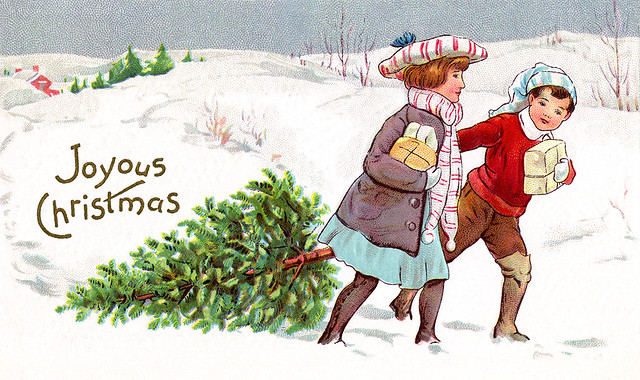
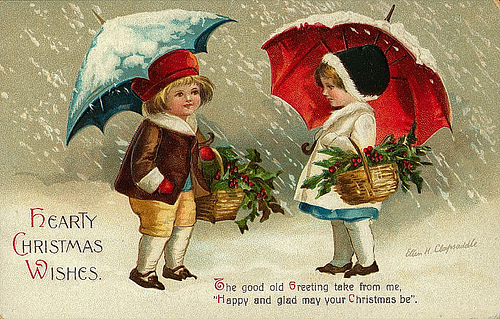

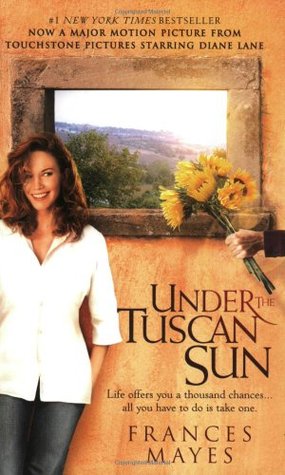








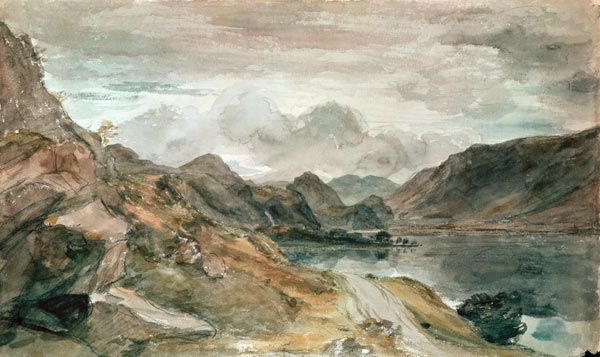






.jpg)

